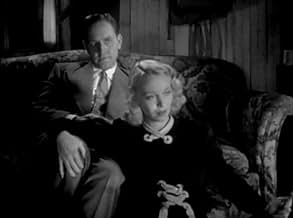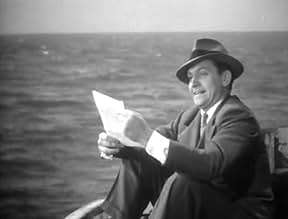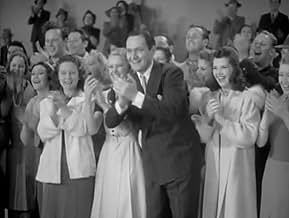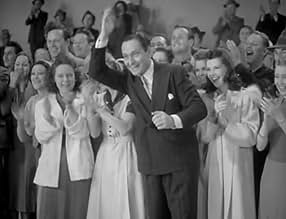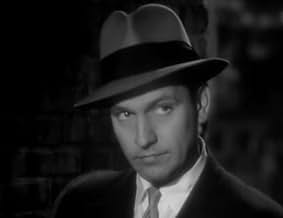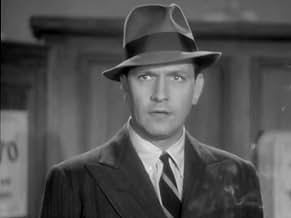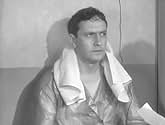Agrega una trama en tu idiomaA young heiress runs away from her overprotective grandfather. Penniless on the streets of New York, she manages to find employment, but a reporter knows her true identity.A young heiress runs away from her overprotective grandfather. Penniless on the streets of New York, she manages to find employment, but a reporter knows her true identity.A young heiress runs away from her overprotective grandfather. Penniless on the streets of New York, she manages to find employment, but a reporter knows her true identity.
- Dirección
- Guionistas
- Elenco
- Nominado a 1 premio Óscar
- 1 nominación en total
Syd Saylor
- Robinson
- (as Sid Saylor)
Ernie Adams
- Cafe Counterman
- (sin créditos)
Ralph Brooks
- Cafe Customer
- (sin créditos)
Horace G. Brown
- Ice Skater
- (sin créditos)
George Burton
- Drayman
- (sin créditos)
- Dirección
- Guionistas
- Todo el elenco y el equipo
- Producción, taquilla y más en IMDbPro
Opiniones destacadas
Okay, so this is a copy of It Happened One Night. Big deal. There's actually a fair amount in it that is different. The basic elements are the same: Girl runs away from dad/grandfather and dodges the detectives but comes face-to-face with a reporter hiding his identity from her.
I would say that the primary difference between films is the attitudes of the leading men. Clark is essentially blackmailing Claudette in IHON, while in this film, Fredric doesn't seem to have any intention of publicising Virginia - he doesn't want to write the story in the first place, keeps delaying the finish of his story, and finally he rips it up and refuses to do it at all. In TGMH, there is also a strange but amusing supporting actress who works in the same store as Virginia does. Oscar Shapely of IHON is not her equivalent, though amusing in his own way, believe you me.
It Happened One Night is definitely the more solid of the two movies, but There Goes My Heart is fun to watch and should be more actively viewed than it is, instead of being condemned by a majority that probably hasn't seen it, but bases their opinions on the negative reviews of others. I myself was sceptical - I just watched it prepared to react whatever way the movie led me, and I have to say that I did like it and would definitely see it again.
I would say that the primary difference between films is the attitudes of the leading men. Clark is essentially blackmailing Claudette in IHON, while in this film, Fredric doesn't seem to have any intention of publicising Virginia - he doesn't want to write the story in the first place, keeps delaying the finish of his story, and finally he rips it up and refuses to do it at all. In TGMH, there is also a strange but amusing supporting actress who works in the same store as Virginia does. Oscar Shapely of IHON is not her equivalent, though amusing in his own way, believe you me.
It Happened One Night is definitely the more solid of the two movies, but There Goes My Heart is fun to watch and should be more actively viewed than it is, instead of being condemned by a majority that probably hasn't seen it, but bases their opinions on the negative reviews of others. I myself was sceptical - I just watched it prepared to react whatever way the movie led me, and I have to say that I did like it and would definitely see it again.
Hounded by the press, an heiress escapes from her stifling, pampered life and takes a job in her own department store.
Produced near the tail-end of the era of screwball comedies, THERE GOES MY HEART is certainly more enjoyable in its parts than in its whole. The film's plot is very silly and much too derivative of IT HAPPENED ONE NIGHT (1934). Situations seem a bit forced and the comedy does not always flow very easily.
This unease attaches itself to the lead players. Distinguished actor Fredric March, playing a strong-willed reporter, seems rather unsteady with all the fatuous behavior about him. But at least he gets to indulge in a bit of energetic acting. Unlucky Virginia Bruce, while lovely, gets to be little more than a mannequin, her comic lines few and far between.
The film's real joviality comes from its supporting actors. Loudmouthed Patsy Kelly is wonderful as the noisy shop clerk who becomes Miss Bruce's pal--watching Patsy trying to recover her missing food in a cafeteria, or attempting to sell a vibrating belt exerciser, are comic highlights. Elderly Claude Gillingwater plays Miss Bruce's grumpy millionaire grandfather. Blustery Eugene Pallette is perfect as March's apoplectic editor.
Smaller roles are also well-cast: British Alan Mowbray as Patsy's chiropractic beau; preppy Arthur Lake as March's faithful photographer; chittering Etienne Girardot as Gillingwater's diminutive factotum; and J. Farrell MacDonald as a highly suspicious cop. Robert Armstrong--his glory days as Carl Denham, Kong's captor, half a decade behind him--is completely wasted in his tiny turn as a private detective.
Movie mavens will have no difficulty in spotting two wonderful performers making unbilled appearances: no-nonsense Marjorie Main shows up as a Butterfield's customer intent on buying a fireless cooker' from Miss Bruce; and in the film's final moments look for silent screen clown Harry Langdon in a delightful cameo as a most helpful parson.
Produced near the tail-end of the era of screwball comedies, THERE GOES MY HEART is certainly more enjoyable in its parts than in its whole. The film's plot is very silly and much too derivative of IT HAPPENED ONE NIGHT (1934). Situations seem a bit forced and the comedy does not always flow very easily.
This unease attaches itself to the lead players. Distinguished actor Fredric March, playing a strong-willed reporter, seems rather unsteady with all the fatuous behavior about him. But at least he gets to indulge in a bit of energetic acting. Unlucky Virginia Bruce, while lovely, gets to be little more than a mannequin, her comic lines few and far between.
The film's real joviality comes from its supporting actors. Loudmouthed Patsy Kelly is wonderful as the noisy shop clerk who becomes Miss Bruce's pal--watching Patsy trying to recover her missing food in a cafeteria, or attempting to sell a vibrating belt exerciser, are comic highlights. Elderly Claude Gillingwater plays Miss Bruce's grumpy millionaire grandfather. Blustery Eugene Pallette is perfect as March's apoplectic editor.
Smaller roles are also well-cast: British Alan Mowbray as Patsy's chiropractic beau; preppy Arthur Lake as March's faithful photographer; chittering Etienne Girardot as Gillingwater's diminutive factotum; and J. Farrell MacDonald as a highly suspicious cop. Robert Armstrong--his glory days as Carl Denham, Kong's captor, half a decade behind him--is completely wasted in his tiny turn as a private detective.
Movie mavens will have no difficulty in spotting two wonderful performers making unbilled appearances: no-nonsense Marjorie Main shows up as a Butterfield's customer intent on buying a fireless cooker' from Miss Bruce; and in the film's final moments look for silent screen clown Harry Langdon in a delightful cameo as a most helpful parson.
After all the negative things I have heard said about this film, I was expecting something very...I don't know...boring, silly, empty. But I must say I was more than pleasantly surprised with it and I did enjoy it. I watched it because I just discovered Fredric March, and have watched over 30 of his films now. I must say that this film in no way provided him to display his marvelous acting skill, but still it was nice to see him do this bit of light comedy. I think the story is nice when you want to watch something that is not heavy, but lighthearted and fun with the usual 1930's "happily ever after" ending. It is something my children would enjoy.
Don't have much else to say, except if you like Fredric as much as I do, you will like this film. Too bad he only gave one kiss in this one!!
Don't have much else to say, except if you like Fredric as much as I do, you will like this film. Too bad he only gave one kiss in this one!!
I think I liked this movie despite the rather formulaic and ridiculous plot because both Viginia Bruce and Frederic March did such a wonderful job with this romantic comedy from Hal Roach Productions.
Virginia is the grand-daughter of a very wealthy but extremely overprotective man. He won't let her go anywhere without him and sees danger around every corner. As a result, she is smothered and bored--aching to live a real life. She escapes and establishes a new identity as a regular working girl. However, reporter Frederic March finds out about the ruse and wants to exploit the woman for a buck. However, once they meet, sparks begin to fly and he is torn between riches and his new love.
You know about where the movie will end--after all, it's a formulaic romantic comedy from an era when the movies never dared stray from the expected course. However, how delicately and believably the stars follow this formula is what makes this film so worth watching. A cute and satisfying little film.
By the way, at the very end there is a cute little cameo by the silent screen star Harry Langdon as the preacher. While his best years in movies were long behind him, he did continue to do small roles in a variety of films over the years.
Virginia is the grand-daughter of a very wealthy but extremely overprotective man. He won't let her go anywhere without him and sees danger around every corner. As a result, she is smothered and bored--aching to live a real life. She escapes and establishes a new identity as a regular working girl. However, reporter Frederic March finds out about the ruse and wants to exploit the woman for a buck. However, once they meet, sparks begin to fly and he is torn between riches and his new love.
You know about where the movie will end--after all, it's a formulaic romantic comedy from an era when the movies never dared stray from the expected course. However, how delicately and believably the stars follow this formula is what makes this film so worth watching. A cute and satisfying little film.
By the way, at the very end there is a cute little cameo by the silent screen star Harry Langdon as the preacher. While his best years in movies were long behind him, he did continue to do small roles in a variety of films over the years.
...It doesn't entirely work, unfortunately. Fredric March is excellent, as always. What a fine and versatile actor! And Virginia Bruce is winning, as she always was. She plays an heiress, he a newspaper reporter sent to get a story about her. (This aspect presages the Bette Davis movie "Golden Arrows.") Eugene Palette, always a treat, plays his editor.
Bruce is not an ideal screwball heroine, unfortunately. Her pale, wistful beauty doesn't really lend itself to the genre, though she is dine in the movie. Patsy Kelly is hilarious as her pal: Bruce has sailed to Manhattan in her yacht while granddaddy is away. She finds herself in the City with no money. At a diner (kind of an Automat but not really) she and Kelly scam some food. Kelly picks her up! "If you don't have anywhere else to go, you can spend the night at my place." Kelly's ostensible romantic interest is Alan Mowbry, a neighbor who is studying to become a chiropractor by mail. What a couple they make! Back at the store where Kelly works, which Grandpa owns, we see Kelly demonstrating a device called "Vibrato." It's a kind of Sapphic intimation of the Vega-Meta-Vitamin sequence decades later from "I Love Lucy." The movie has a sterling supporting cast, which also includes Nancy Carroll, delicious as a jealous, catty fellow saleswoman.
It also, unfortunately, has afar too lengthy and pointless scene with Bruce and march at a skating rink. Why it was allowed to go on so long is a mystery. (There is a similar scene in one of Irene Dunne's lesser comedies -- "Joy of Living," I think.) The movie begins in a stylish, chic manner but it loses its way. It could have been in the top tier but as it is it's still fun.
Bruce is not an ideal screwball heroine, unfortunately. Her pale, wistful beauty doesn't really lend itself to the genre, though she is dine in the movie. Patsy Kelly is hilarious as her pal: Bruce has sailed to Manhattan in her yacht while granddaddy is away. She finds herself in the City with no money. At a diner (kind of an Automat but not really) she and Kelly scam some food. Kelly picks her up! "If you don't have anywhere else to go, you can spend the night at my place." Kelly's ostensible romantic interest is Alan Mowbry, a neighbor who is studying to become a chiropractor by mail. What a couple they make! Back at the store where Kelly works, which Grandpa owns, we see Kelly demonstrating a device called "Vibrato." It's a kind of Sapphic intimation of the Vega-Meta-Vitamin sequence decades later from "I Love Lucy." The movie has a sterling supporting cast, which also includes Nancy Carroll, delicious as a jealous, catty fellow saleswoman.
It also, unfortunately, has afar too lengthy and pointless scene with Bruce and march at a skating rink. Why it was allowed to go on so long is a mystery. (There is a similar scene in one of Irene Dunne's lesser comedies -- "Joy of Living," I think.) The movie begins in a stylish, chic manner but it loses its way. It could have been in the top tier but as it is it's still fun.
¿Sabías que…?
- TriviaAccording to a New York Times article on 16 October 1938, the Citizen's Chiropractic Committee of New York State sued the film producers, authors and Alan Mowbray for $100,000 claiming damages to the profession. One doctor was very upset that the film implied it was possible to go through a chiropractic school through a correspondence course. The outcome of the suit is not known.
- Citas
Peggy O'Brien: Just think, someday i'll be Mrs. Doctor Pennypepper E. Pennypepper... then I'll find out what the E. stands for!
- Créditos curiososThe opening credits are shown as if viewed through a ship's porthole with waves erasing each set of credits.
- Bandas sonorasA Life on the Ocean Wave
(1838) (uncredited)
Music by Henry Russell
Lyrics by Epes Sargent
Sung a cappella by Fredric March
Selecciones populares
Inicia sesión para calificar y agrega a la lista de videos para obtener recomendaciones personalizadas
Detalles
- Fecha de lanzamiento
- País de origen
- Idioma
- También se conoce como
- En flicka överbord
- Locaciones de filmación
- Productora
- Ver más créditos de la compañía en IMDbPro
- Tiempo de ejecución
- 1h 23min(83 min)
- Color
- Relación de aspecto
- 1.37 : 1
Contribuir a esta página
Sugiere una edición o agrega el contenido que falta

